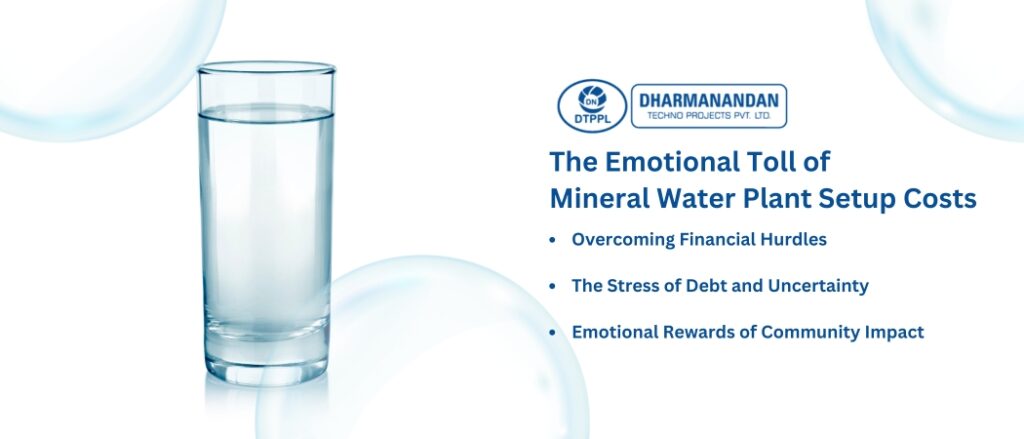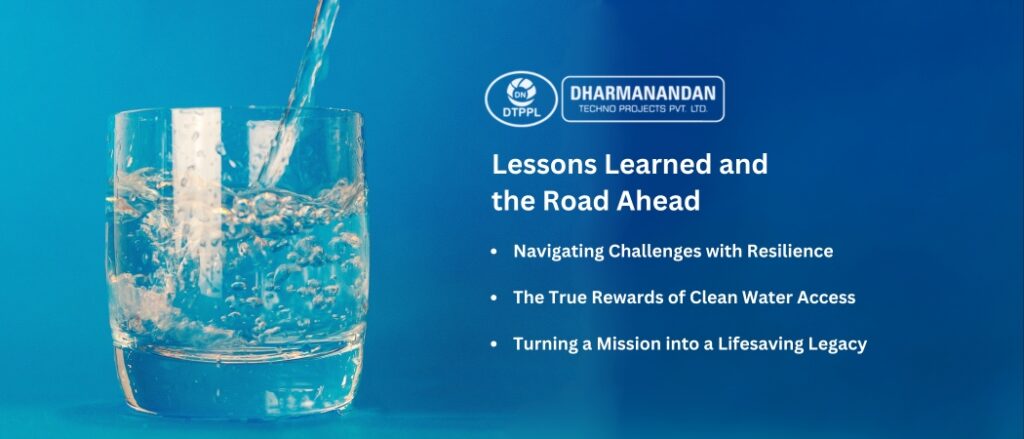
Table of Contents
Key Regulations and Standards for Mineral Water Plants in Libya, Angola, and Burkina Faso
December 29, 2024
In a land where survival often revolves around access to clean water, the story of mineral water plants in Libya, Angola, and Burkina Faso isn’t just about bureaucracy and regulations—it’s a tale of hope and endurance. It’s about the silent battles fought in boardrooms, laboratories, and remote communities, where one decision can mean the difference between contaminated water and life-saving purity. Navigating the complex web of regulations in these countries can feel like an emotional roller coaster, but it’s a journey that’s ultimately about giving people the one thing they desperately crave: safe water.
1. The Pain of Water Insecurity
Picture a dusty village on the outskirts of Tripoli, Libya. Women walk miles in search of water, each step weighed down not just by heavy jugs but by the anxiety of whether the water they collect will make their families sick. In Angola, water scarcity isn’t just a problem; it’s a daily torment. Parents watch helplessly as their children fall ill from consuming contaminated water. In Burkina Faso, the situation is no different. The desperation is palpable, a shared suffering woven into the lives of millions.
Enter the promise of a mineral water plant. These facilities could be game-changers, transforming how communities access clean, drinkable water. But before a single drop of mineral water can reach the public, these plants must navigate a labyrinth of standards and regulations designed to ensure quality and safety.
2. The Complex World of Regulations in Libya
In Libya, setting up a mineral water plant in Libya feels like attempting to climb an endless mountain. The country’s regulatory framework is extensive, with rules covering everything from water source testing to packaging standards. Entrepreneurs must prove that the water source is free from contaminants and undergo rigorous testing using advanced mineral water machines. Failing to meet even one requirement could mean devastating setbacks, delays, and financial loss.
Imagine the emotional toll of waiting months for the necessary approvals, only to receive a letter from the health department listing additional compliance issues. The fear of running out of funds and the stress of constantly revising business plans weigh heavily on those brave enough to enter this industry. Yet, there’s a silver lining. Once the plant is operational, the relief of knowing you are delivering life-saving water to people who need it most can overshadow all previous struggles.
3. Angola: Navigating Bureaucracy and Environmental Standards
Setting up a mineral water plant in Angola comes with its own unique set of challenges. Angola has strict environmental regulations to protect its precious, yet dwindling, water resources. Before starting operations, a comprehensive environmental impact assessment must be conducted. The cost of mineral water plant assessments alone can be crushing, forcing many hopeful entrepreneurs to reconsider their ventures.
But that’s just the beginning. Compliance with Angola’s health standards means sourcing top-notch mineral water equipment and conducting multiple rounds of quality testing. The sheer financial burden of meeting these regulations can cause immense stress, leaving business owners questioning whether the investment will ever pay off. Yet, for those who manage to clear every hurdle, the success isn’t just financial. It’s the knowledge that families in Angola can drink without fear, that children can stay healthy, and that communities can prosper.
4. Burkina Faso: Battling for Certification and Compliance
In Burkina Faso, the road to setting up a mineral water plant in Burkina Faso is fraught with obstacles that test patience and willpower. Here, businesses face a bureaucratic maze to obtain the proper licenses. The documents required for mineral water plant approval are exhaustive, covering everything from water quality certification to proper waste management protocols. Each step requires significant time, energy, and resources, and the emotional burden can be immense.
Aspiring plant owners frequently find themselves battling exhaustion and frustration as they submit paperwork, wait for approval, and then resubmit corrected forms. Each delay means that communities continue to suffer, that mothers continue to walk miles for water, and that preventable diseases continue to claim lives. But there’s also triumph. When that long-awaited license finally arrives, the sense of relief is indescribable. The knowledge that all the pain and stress have led to a new, life-saving resource is enough to bring tears of joy.
5. The Emotional Toll of Mineral Water Plant Setup Costs
The mineral water plant setup cost is a financial mountain that many find nearly impossible to climb. In Libya, Angola, and Burkina Faso, the expenses aren’t just about machines and land; they involve countless hidden costs like inspections, environmental fees, and staff training. The fear of running out of money is a constant shadow, lurking behind every decision. Business owners must secure funding through loans or partnerships, but the pressure of repaying debts can lead to sleepless nights and relentless anxiety.
Yet, for some, the risk is worth the reward. The dream of transforming communities keeps them going, even in the darkest hours. One entrepreneur in Angola spoke of how every setback felt like a personal failure, yet the thought of delivering clean water to villages that had never tasted it before made every sacrifice worthwhile. The journey is never easy, but the emotional payoff can be profound.

6. The Critical Role of Quality Control
Quality control is the backbone of any mineral water operation, and the regulations around it are stringent. A mineral water plant business must invest in sophisticated mineral water machines to ensure every bottle meets safety standards. In Burkina Faso, inspectors perform random checks, and failing a quality test can mean heavy fines or even a plant shutdown. The stress of maintaining consistent quality is overwhelming, but the stakes are too high to cut corners.
Imagine the pressure: knowing that one bad batch could ruin your reputation and potentially harm people who rely on your water. Yet, when those machines churn out bottle after bottle of pure, life-giving water, the pride and happiness are indescribable. It’s a reminder of why the battle is worth fighting.
7. The Unseen Heroes: Employees and Community Impact
Behind every successful mineral water plant project are teams of workers who pour their hearts into the mission. In Angola, a factory worker shares the joy of knowing that their labor helps keep families healthy. In Libya, an engineer talks about the pride of maintaining water machines that purify thousands of liters a day. Employees often see their jobs as more than work; they see it as a calling, a way to give back to their communities.
The impact of these plants goes beyond just clean water. They create jobs, boost local economies, and bring a sense of pride to regions that have long struggled. In Burkina Faso, a community once known for its water scarcity now thrives, thanks to a local plant. Farmers can water their crops, children can attend school regularly, and families can sleep peacefully, knowing they won’t have to wake up in the middle of the night to search for water.
8. Lessons Learned and the Road Ahead
The journey of setting up mineral water plants in Libya, Angola, and Burkina Faso teaches valuable lessons about resilience, sacrifice, and the human spirit. It’s about understanding that the fight for clean water is more than a business venture; it’s a mission with real human consequences. It’s about learning to navigate bureaucracy, handle financial stress, and overcome the fear of failure.
For those who succeed, the reward isn’t just monetary. It’s the sight of children running around, hydrated and healthy. It’s the relief in a mother’s eyes as she fills a jug with clean water for the first time. It’s the knowledge that, in a world full of challenges, you’ve made a tangible, life-saving impact.


Conclusion
The regulations and standards for mineral water plants in Libya, Angola, and Burkina Faso may seem insurmountable, but they are crucial for ensuring that every drop of water produced is safe and pure. The path is filled with pain, fear, and stress, but also with moments of profound happiness and success. If you’re inspired to make a difference in your community by investing in a mineral water plant, partnering with a trusted manufacturer is essential. DTPPL, a renowned mineral water plant manufacturer and supplier, provides the expertise, equipment, and support you need to navigate this challenging journey. Transform lives, ensure water safety, and be part of the solution. Contact DTPPL today to take the first step toward making clean water accessible to all.
About Author

Director – Global Marketing and Sales
Mr. Bhavesh from Dharmanandan Techno Projects Pvt. Ltd. has played a pivotal role in elevating the DTPPL brand to the global stage, leveraging his exceptional expertise in marketing and communications. He is committed to helping clients achieve significant growth while strengthening their own brands. Dharmanandan Techno Projects Pvt. Ltd. is a leading manufacturer and supplier of water purification systems and turnkey solutions for mineral water plants. With years of experience in designing and delivering high-quality water treatment solutions, the company provides end-to-end services, including system design, installation, maintenance, and ongoing support. Specializing in scalable and customizable water plants, DTPPL has successfully served industries worldwide, ensuring clean and safe drinking water across diverse applications.




